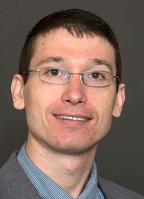Quinn receives NSF funding
Quinn's project is titled: "EAGER: Collaborative Research: Understanding and Modeling Rumor Propagation for Vulnerability Assessment of Social Media Platforms".
ABSTRACT
As social media becomes a primary news source, rumors can spread widely in a short time. In recent cases, the rapid spread of misinformation caused social panic, had a dramatic financial impact, and put individuals and communities at great risk. Even when correct information is eventually disseminated, large delays can have devastating consequences. To determine how vulnerable networks are to misinformation spread, and to develop effective proactive and reactive counter-measures, it is necessary to study rumor propagation. However, rumor propagation is challenging to model and capture due to its dynamic complexity and self-sustaining nature.
The rapid diffusion of rumors across online social networks is influenced by numerous factors from both local (user forwarding behavior) and global (network diffusion) perspectives. Diffusion depends on each user's local decision about whether to propagate the information or not. That decision is related to factors including trust relationships, information provenance, and content. Diffusion also depends on the global topology of networks, how users are interconnected, as well as the rate at which users propagate the content. From this global point of view, characterizing rumor propagation across networks requires accurate yet tractable mathematical models of diffusion. This project investigates rumor diffusion via social media from these two perspectives. The integration of social psychological and computer science methodologies in this project reveals propagation patterns in large-scale networks and the psychological motivations driving user behavior. This project contributes to better monitoring, detection, and ultimately prevention of the propagation of misinformation that undermines social stability and national security. Research and training opportunities are offered to students across multiple fields, including computer science, engineering, and social science.

